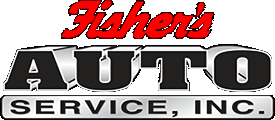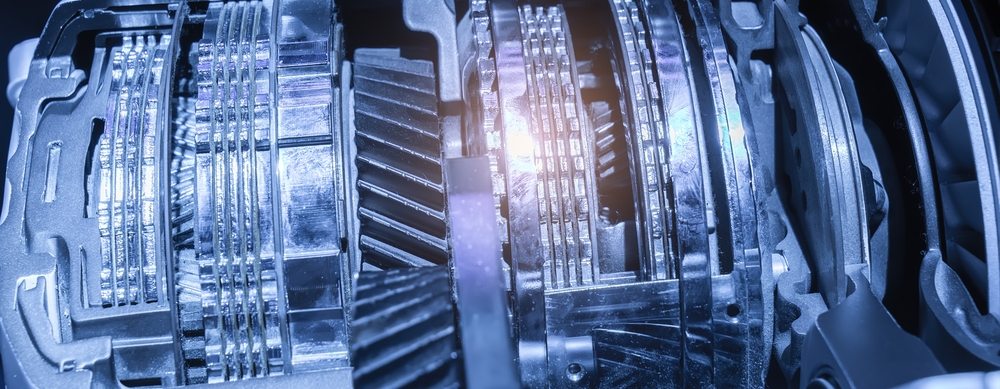 I’ve heard lots of controversy over which transmission service is better: a fluid exchange or a fluid flush. I think it comes down to automotive experience and routine maintenance habits. New car owners who follow the factory-recommended service interval will likely be fine scheduling either service without experiencing any issues. However, motorists acquiring an older car with a questionable service history may want to stick with a transmission fluid exchange and skip the fluid flush altogether to play it safe. Keep reading if you have questions about choosing a fluid exchange or a fluid flush for your next auto transmission service interval.
I’ve heard lots of controversy over which transmission service is better: a fluid exchange or a fluid flush. I think it comes down to automotive experience and routine maintenance habits. New car owners who follow the factory-recommended service interval will likely be fine scheduling either service without experiencing any issues. However, motorists acquiring an older car with a questionable service history may want to stick with a transmission fluid exchange and skip the fluid flush altogether to play it safe. Keep reading if you have questions about choosing a fluid exchange or a fluid flush for your next auto transmission service interval.
Auto Transmission Fluid Maintenance
Transmission fluids lubricate essential moving parts and help prevent corrosion in your transmission system. They also provide cooling properties, which is key since all those moving parts in your vehicle’s transmission generate lots of heat. Performing routine maintenance on your vehicle’s transmission includes a service similar to an oil change. They are called a transmission fluid exchange and a transmission fluid flush. Which service is better for your vehicle depends on several factors. Let’s review the differences between them.
Fluid Exchange
A fluid exchange service appointment involves draining and replacing about 50-70% of the old fluid, often containing tiny metal flakes and other contaminants. The technician also replaces the transmission oil filter and reseals the pan with a gasket or sealant.
Fluid Flush
A fluid flush service appointment removes about 75-90% of the old, dirty fluid from the transmission components. The service technician uses a specialized machine that flushes out the old fluid under pressure and simultaneously refills the system with new, clean fluid. The fresh transmission fluid flushes out particulates and contaminants along with the old fluid. This process typically uses twice the fluid volume recommended for your vehicle to complete the flushing process. Lastly, the technician replaces the filter and seals to complete the service.
Transmission Fluid Types
The type of transmission fluid your vehicle requires depends on the transmission system it uses. Conventional fluid comes from refined crude oil and is usually the less expensive option. Alternatively, synthetic fluids offer higher lubrication levels, thermal stability, and oxidation resistance. Read your owner’s manual for your vehicle’s factory-recommended type.
Automatic Transmission Fluid (ATF)
This fluid works in vehicles equipped with automatic transmissions. It acts as both a hydraulic fluid and a lubricant. ATF is available in various grades and formulas depending on vehicle type and use.
Manual Transmission Fluid (Gear Oil)
This fluid (or lube) is thicker and more viscous than ATF since it works in manual transmission vehicles. It provides lubrication and heat absorption and reduces friction and wear to the gears. Gear oils come in numerous formulas, so read your owner’s manual to find the correct type for your vehicle.
Benefits Of Transmission Fluid Service
Transmission fluid is a specialized hydraulic lubricant in your vehicle’s transmission system. It helps reduce wear and dissipate heat while your vehicle shifts gears. It also transfers power generated by the engine to the wheels. Unfortunately, over time, automatic and manual both fluids break down and accumulate metal particles, moisture, and debris. While transmission fluid doesn’t need servicing as often as engine oil, it’s important to check it regularly. Fresh transmission fluid provides numerous benefits for your vehicle. For example:
- Fresh chemical additives reduce friction and wear
- Possible reduction of emissions
- Renewed lubricating properties for moving parts within the transmission system
- Routine maintenance keeps you within factory-warranty requirements
- Smoother shifting can result in increased ride comfort
Hazards Of A Transmission Fluid Flush
Generally speaking, a transmission flush is a standard, safe automotive service performed all the time. However, some older vehicles with a spotty service history can experience fluid flowing in the wrong direction and dislodging debris or sludge. This debris can flow into other areas, causing clogs and possibly damaging the transmission.
Factory-Recommended Service Interval
Scheduling factory-recommended service and using your vehicle’s correct automatic transmission fluid is essential. The age of your automobile, as well as the make and model, will determine when to schedule service. Read your owner’s manual to determine which type of fluid is best for your automobile and how often to schedule your fluid exchange or fluid flush service. Below are some general guidelines to consider.
Automatic Transmission
Auto manufacturers recommend scheduling an automatic transmission fluid service every 30,000 -100,000 or even 150,000 miles. Obviously, this service interval range is pretty wide. This is due to vehicle type, age, and driving style, which all impact the longevity and efficiency of automatic fluid. If you have questions on how often to schedule your service, consult your trusted service technician for guidance.
Manual Transmission
Auto manufacturers of manual transmission vehicles recommend scheduling a manual transmission fluid service every 30,000 – 80,000 miles. Of course, vehicle make, model, and year may impact this general suggestion. The type of driving you do can also affect the gear oil in your car. Towing, aggressive driving, and frequent stop-and-go traffic can require more frequent service.
Transmission Service in Kirkland, WA
At Fisher’s Auto Service, we specialize in servicing all types of transmissions, including manual, automatic, and semi-automatic transmissions. Your transmission is one of the most complicated parts of your vehicle and operates under harsh conditions. Modern transmissions are exceedingly complex. Our experienced ASE-certified and Master-mechanics will help you maintain the factory-recommended service interval and keep your vehicle running like new.
Schedule Your Service
Call Fisher’s Auto Service at (425) 441-3586 or visit us online today! We are your best, one-stop auto repair shop in Kirkland, WA, specializing in transmission services and repairs, providing trustworthy and fast service with reasonable pricing. We also offer a comprehensive, in-house warranty.

